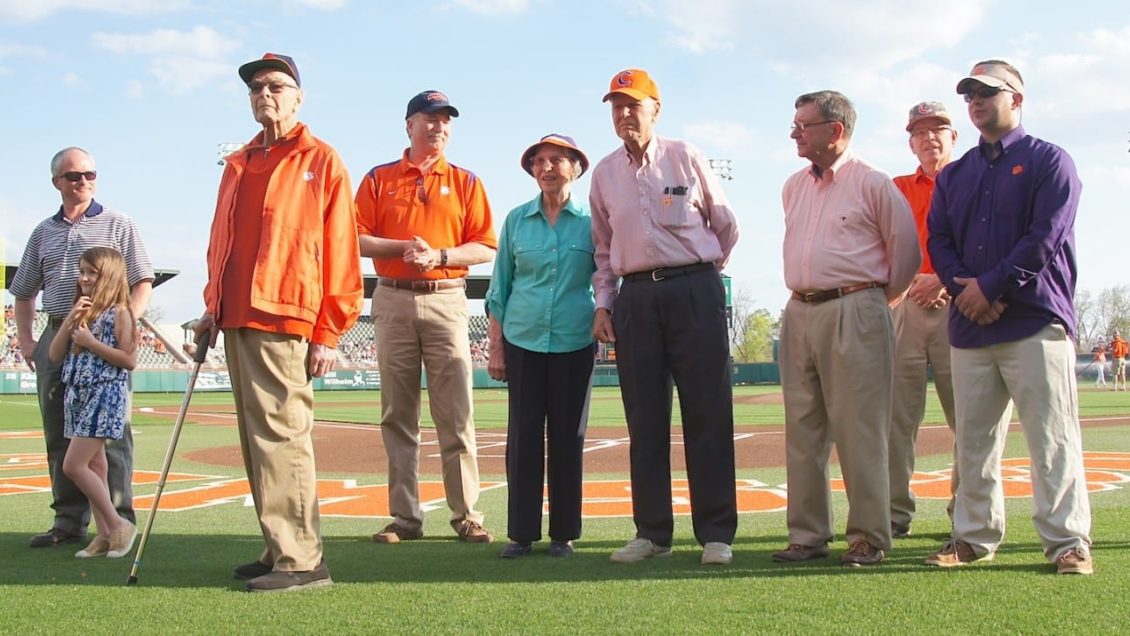(This story was first published April 19, 2018)
CLEMSON — Members of the Clemson University Extension family took time to honor four of their own for lifetimes of service to the people of South Carolina in ceremonies April 13-14.
The four — Ruby Craven, Bill Funchess, Harold Liebenrood and Dudley Steer — worked as agents of the Clemson Extension Service, delivering research-based information and methods to farmers, homeowners and agribusinesses.
They comprise the 2018 class of the Frank Lever County Extension Agent Hall of Fame. Established four years ago on the 100th anniversary of the Cooperative Extension Service, the hall of fame was created to honor the careers of “longtime, front-line county agents” whose work had an important economic impact on the communities they served.
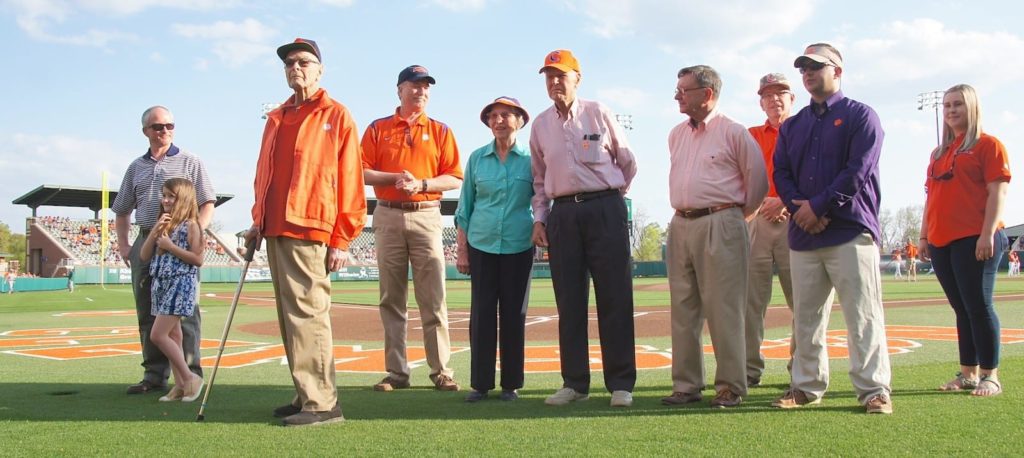
The program bears the name of U.S. Rep. A. Francis “Frank” Lever of South Carolina, co-author of the Smith-Lever Act of 1914 that created the Extension Service nationally. Lever, a Lexington County native and Clemson trustee, envisioned a national program that would take research-based agricultural and food-science knowledge from colleges and universities and put it in the hands of working people it would benefit.
“These are the unsung heroes — the people who made a difference in lives all across the state, one family at a time, one farmer at a time,” said Clemson Extension Director Thomas Dobbins.
“Frank Lever put service above self,” Dobbins said. “He could have been a U.S. senator, but decided to honor President Woodrow Wilson’s request that he stay in the House of Representatives to create the Extension Service. That decision changed the face of agriculture in this country, and the people we honor today are his legacy.”
This year’s inductees are:
Ruby Craven
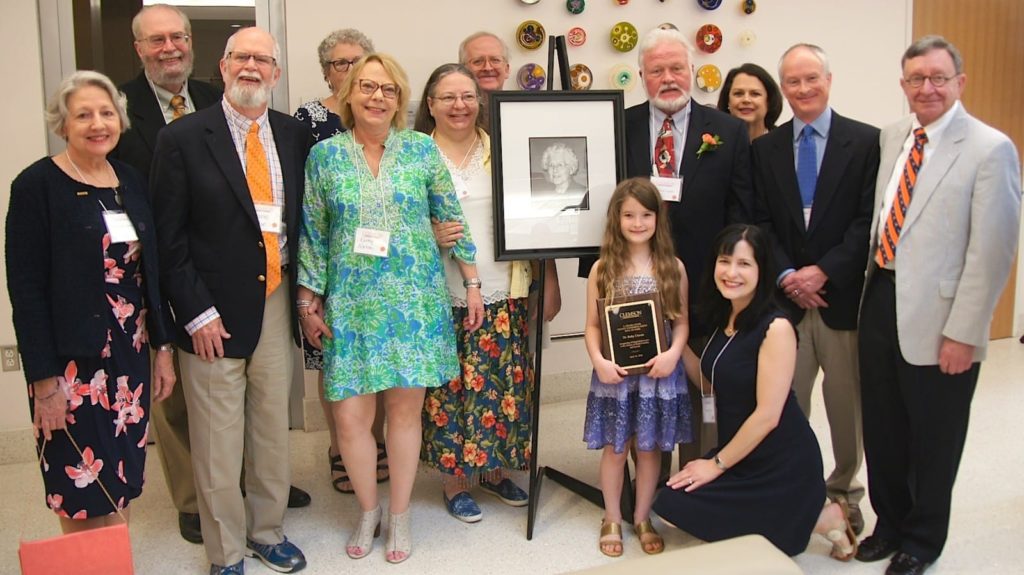
The driving force for Extension home economics in its formative years, Ruby Craven began her career in the classroom, teaching home economics in high school. But it wouldn’t be long before she took her teaching beyond the schoolhouse and into the home.
She made the move to Extension work in 1947 as a home demonstration agent in Spartanburg and Lancaster counties before becoming a poultry specialist at Winthrop College. She held the title of Extension home management specialist at Winthrop for 13 years until the Extension Home Demonstration Department was transferred to Clemson, where she became a district agent, state agent and, in 1967, state leader of home economics programs.
At Clemson she established a laboratory for home economics teaching and demonstrations in what is now called the Ruby Craven Room in the venerable “P&A Building,” the Poole Agricultural Center.
Craven led efforts to integrate statewide Extension home demonstration efforts under the Civil Rights Act of 1964. She also directed the implementation of the Expanded Food and Nutrition Education Program under federal mandate in the 1960s, an effort that has helped improve the nutrition of low-income families, especially those with young children, for nearly half a century.
“Even after retirement, she spent many hours supporting family issues and established computer classes for other residents of the Bethea Retirement Community in Darlington County,” said Mary Harvey, who nominated her for the award.
Craven’s educational background was as diverse as the subjects she taught. She earned degrees from Winthrop College, the Women’s College of the University of North Carolina (Greensboro) and Cornell University, as well as a master’s degree from the University of Tennessee and a doctorate in home economics from the University of Wisconsin.
She was recognized by the American Home Economics Association at its annual meeting in 1994 for her 50 years of leadership in the field. She was active in both the state and national Extension Home Economics Associations throughout her career and provided guidance and support for the Extension Homemakers Councils in South Carolina.
William H. Funchess
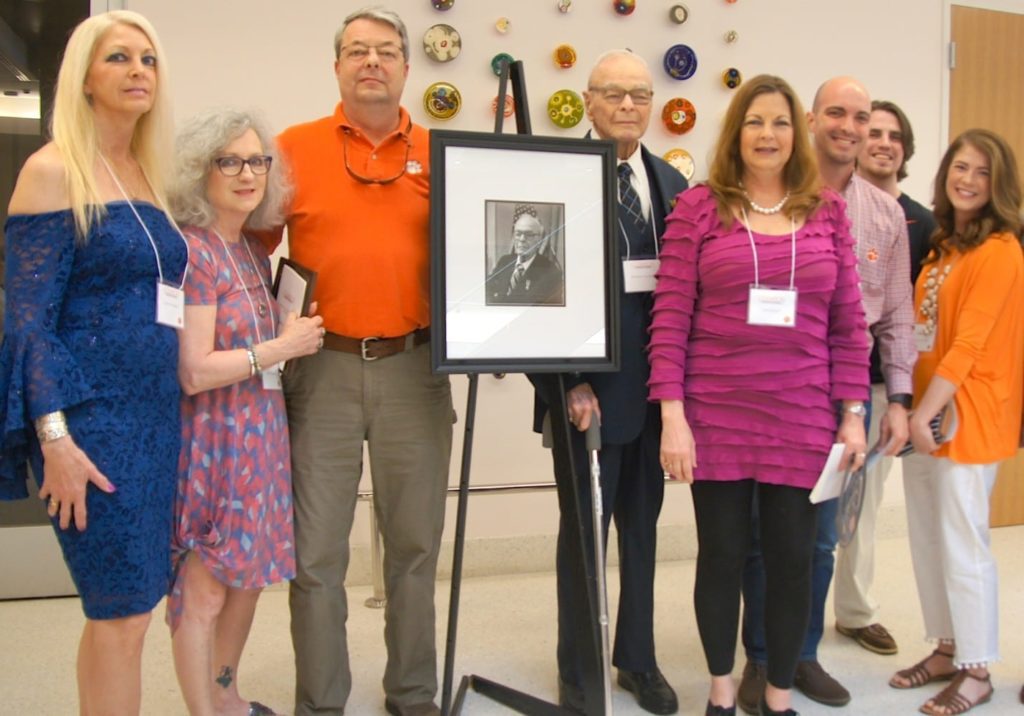
When he began his work as a county agent in 1954, Bill Funchess’ first assignment taught him a lesson that would stick with him the rest of his career. Assigned to work in the small community of Limestone in Edgefield County, he found a group of small farmers whose farm methods — and yields — needed updating.
“Many of them worked elsewhere and farmed part-time,” he would later write. “I selected one part-time farmer who struggled to produce a profitable corn yield. Year after year he planted seed corn from the previous year’s crop, used a minimum amount of fertilizer and felt successful if he produced 25 bushels per acre.”
Funchess convinced the farmer to devote a two-acre plot in the middle of his cornfield to new methods recommended by Clemson Extension. Funchess provided new seed corn and doubled the amount of nitrogen used the sidedress the crop.
“When the corn matured, he harvested an average of 23 bushels per acre from the field surrounding the demonstration plot, but the demonstration area produced 70 bushels per acre — a yield that amazed him and his neighbors,” Funchess said. “From that demonstration I learned that people will accept Extension’s recommendations more readily if they see for themselves the benefits that are possible. That was my first Extension lesson.”
It was hardly his last. Funchess served 32 years as a Clemson Extension agent in Edgefield, Richland and Allendale counties, ultimately concluding his career as a district Extension leader and associate professor of agronomy.
His work with row crop farmers and cattlemen garnered significant recognition not only in South Carolina but nationally as well, earning him the Distinguished Service Award from the National Association of County Extension Agents in 1968.
His work with minority farmers earned him a personal commendation from USDA civil rights auditors and set the standard for ensuring equal access to Extension programs.
An Army first lieutenant whose book, “A Thousand Days of Torment,” recounts his experience as a Korean War P.O.W., Funchess was a natural leader. He helped organize the Allendale County Cattlemen’s Association and provided it leadership that, with assistance from Sen. Edgar Brown, led to the establishment of bull test facilities at Clemson’s Edisto Research and Education Center, which now hosts one of the nation’s oldest and best recognized forage-fed bull test sales.
He worked closely with the S.C. Soybean Association in developing new cultural practices and cooperated with the Soil Conservation Service and local farmers in the adoption of no-till farming practices. Newly employed Extension specialists were often brought to Allendale to observe the use of new products and practices under his direction — and to study first-hand the lesson Funchess learned on that two-acre plot of corn.
Harold Liebenrood
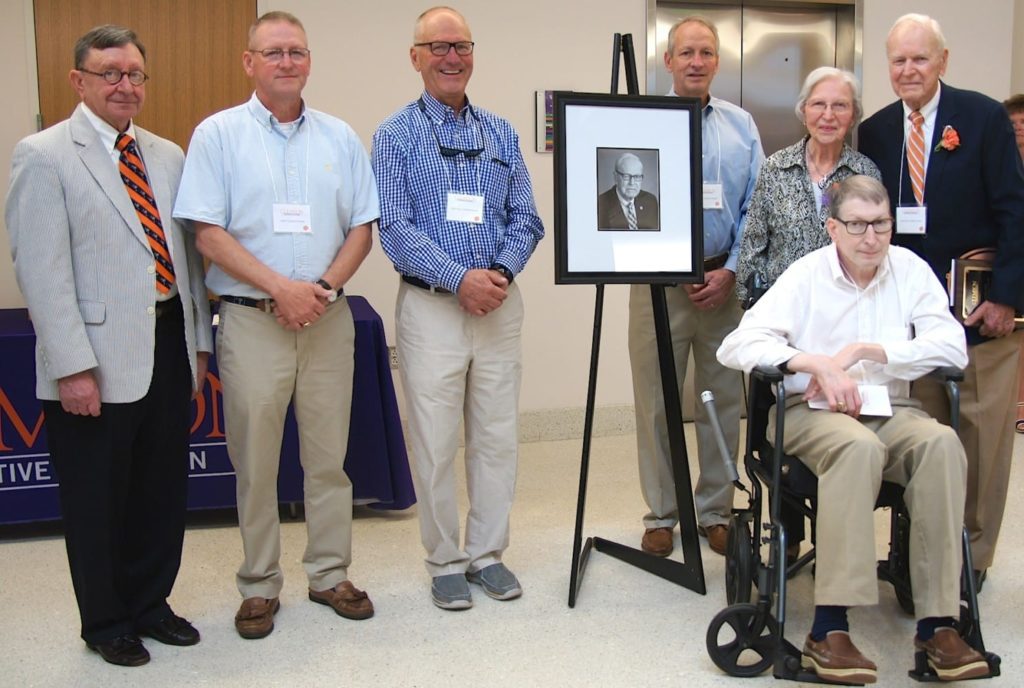
Any teacher can tell you that subject matter knowledge is essential, but no less important is your skill dealing with people.
Harold Liebenrood was well noted for both.
“As a Pee Dee district agent and a county agent, he had the ability to recruit, hire and place the right people in the right job,” said Russell Duncan, who once worked for Liebenrood and nominated him for the Lever Hall of Fame. “He had the uncanny ability to recognize who would be the best fit for a particular situation.”
Those situations varied from 4-H programs — for which Liebenrood won a statewide award in the Oakdale Community of Clarendon County in 1961 — to agricultural programs. He organized and conducted sprayer calibration training for farmers in Bamberg County that helped them save money and increase yields by consistently applying exactly the right amount of chemicals required for a specific job. He conducted the first on-farm demonstrations of the Treflan herbicide in the county and assisted farmers in the proper use and application of 2,4-D herbicides.
Liebenrood also saw the need for formal training for farm equipment operators. From start to finish, he designed the educational program, secured funding for it and worked with Voorhees College in Denmark to conduct the training classes.
In Horry County, he worked with the Bucksport Community to establish the first rural water system in the county. This eventually led to the formation of the Grand Strand Water and Sewer Authority, which oversaw countywide implementation of rural water and sewer systems.
A strong advocate for safety, he also worked closely with tobacco farmers, paying special attention to proper agrichemical use and application.
He worked with Charleston Extension agent Barrett Lawrimore to create the first Master Gardener county program in the state. In 1967, he received the Distinguished Service Award from the National Association of County Agricultural Agents and was bestowed the same honor by Epsilon Sigma Phi, an honorary fraternity recognizing excellence in the Cooperative Extension.
Even after retirement in 1984, Liebenrood remained active in agriculture and the community. He served as director of the Eastern Carolina Agricultural Fair for nearly 20 years, steering it to return to its agricultural roots. A founding member of the Manning Jaycees, he also was an active member of the Rotary and Lions clubs.
Richard Dudley Steer
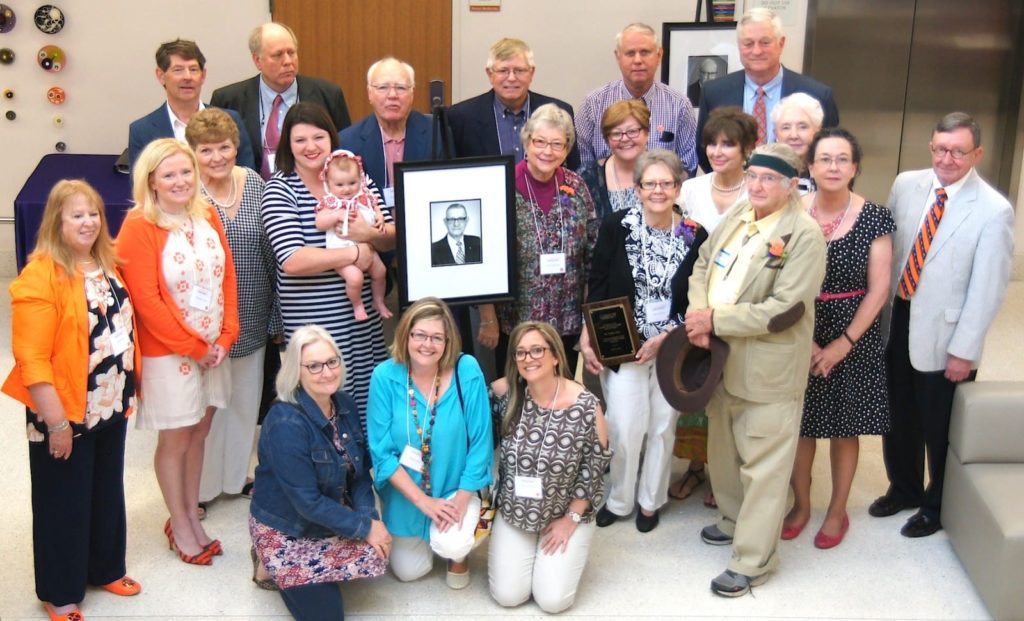
Cotton was king when Dudley Steer began his career in 1928. But the king was beset with problems: Boll weevils, soil erosion and low yields devastated farm income — just when the Great Depression was settling in.
Steer knew farmers needed a broader, more diverse set of crops on which to depend. Serving as a county Extension agent in four counties — Newberry, Spartanburg, Lancaster and Greenwood — and as both a dairy and a marketing specialist at various times in his career, Steer had the knowledge and experience to get the job done.
“Dudley Steer helped rural people create a better life for themselves and their families through education, adoption of research-based information, implementation of successful practices and working together cooperatively,” said Phil Perry, who nominated Steer for the honor and is himself a member of the Lever Hall of Fame. “He helped farmers move from a single cotton crop-farming system to diversified dairy, beef and poultry farming operations.
“For 42 years he took Clemson University to the people using his training, experience and observations,” Perry said. “He conducted many, many farm visits, tours, field days, fairs, shows and sales for the farming folk. He promoted 4-H club work and knew that some of your best rewards come from assisting young people.”
Steer concentrated on helping improve markets for farmers’ products and understood that farmers could attain more by working together for a common cause.
He believed that farm cooperatives could help process, store, market and transport farm products, freeing farmers to devote all their time, energy and education to practice efficient production of crops and livestock.
Steer was instrumental in organizing more than three dozen state and local farm-related cooperatives, many of which are still operating today. They were as diverse as the crops farmers had adopted under his leadership: dairy, eggs, peaches — even artificial breeding associations.
In each case, Steer helped write the charters and bylaws, set up the first book keeping systems, prepared annual financial reports, helped file the first income tax reports, and assisted the directors with annual membership meetings.
He also worked with other cooperative marketing organizations in the fields of farm supplies, grain storage, fertilizer, farm credit, electric power, poultry and hogs. These cooperatives assured farmers of ready access to needed supplies at reasonable prices and dependable markets for their products.
According to Perry, Steer kept a list of traits that summed up his personal philosophy. Among them: “Always prepare yourself for the next step up. Always be on time. Always do what you say you will do. Your good works eventually will be noticed. Never brag about what you do.”
Steer was right. He didn’t brag. But his colleagues’ appreciation for his work landed him in the Hall of Fame.
Get in touch and we will connect you with the author or another expert.
Or email us at news@clemson.edu

